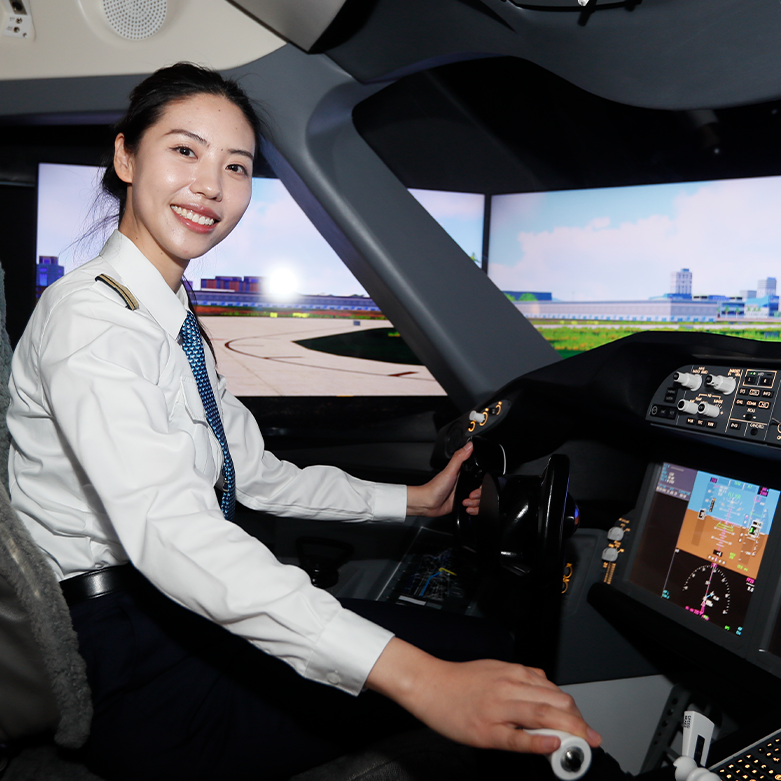Chinese airlines lifts women’s workplace participation with gender equality strategy
Read more

Luo Danyi wanted to be a pilot since she was in her teens. Now at age 31, she is a captain flying for Xiamen Airlines, which has utilized its UN Global Compact participation to make sure that nothing holds down Luo and other qualified women from taking to the skies.
Aiming to increase the number of women in senior roles and under-represented jobs, the state-owned airline has recognized that the work of pilots presented a particular challenge, given the irregular hours, unconventional workplace and physical demands.
Headquartered in Fujian Province, Xiamen Airlines flies more than 40 million passengers each year on some 350 domestic and international routes that include Paris, Amsterdam, Sydney and Los Angeles.
Luo estimates she spends 70 per cent of her working hours on flights, aboard the airlines’ fleet of wide-body Boeing 787 Dreamliners on long-distance, transcontinental routes.
She joined the airline just after university as a first officer on a fleet of smaller planes before being promoted to captain of the 787s.
“When the 787 fleet was calling for pilots in our company, I was pretty nervous and worried that I couldn’t get the opportunity,” she said. But the airline’s policies towards women allayed those fears.
“Actually, the company never questioned me due to gender issues,” she said. “The promotion process of a pilot is not influenced by gender. It’s entirely technical, based on qualifications, learnings and skills checks.”
Luo Danyi, who flies wide-body Boeing 787 Dreamliners for Xiamen Airlines, says the company has made sure its female employees are treated and promoted fairly.
Deciding to include gender equality as a distinct component in its sustainable development planning, elevating its importance to a strategic level, Xiamen Airlines turned to the Target Gender Equality Accelerator of the UN Global Compact. It conducted its performance analysis through the Women’s Empowerment Principles (WEPs) and Gender Gap Analysis Toolkit to set a baseline and establish concrete steps to strengthen gender equality.
“We need to establish sub-targets and milestones, incorporating them into the company’s Key Performance Indicators to ensure a noticeable impact,” said Zhang Na, Director of Sustainable Development of Planning and Finance.
Xiamen Airlines, which ranks in the top 30 in revenue and in the top 13 in passenger traffic among the 270-plus member airlines of the International Air Transport Association (IATA), offers 540 days of maternity leave for female pilots and 450 days of maternity leave for flight attendants. For lactating mothers, it tries to arrange short-distance and same-day return flights and day-time shifts for ground staff, and it has built 17 “Mom’s Rooms” in its workplaces to provide private rest and breastfeeding facilities.
About 30 per cent of its employees are female, and about 20 per cent of its managerial positions at the director level and above are held by women.
The future looks bright for making further progress in boosting women’s participation at the airlines, said Zhang.
“It is anticipated that with the guidance of systematic indicators and scientific methodologies from the UN Global Compact and innovative approaches in resource mobilization, Xiamen Airlines will further the progress to promote well-being of female employees and thus gender equality,” Zhang said.


